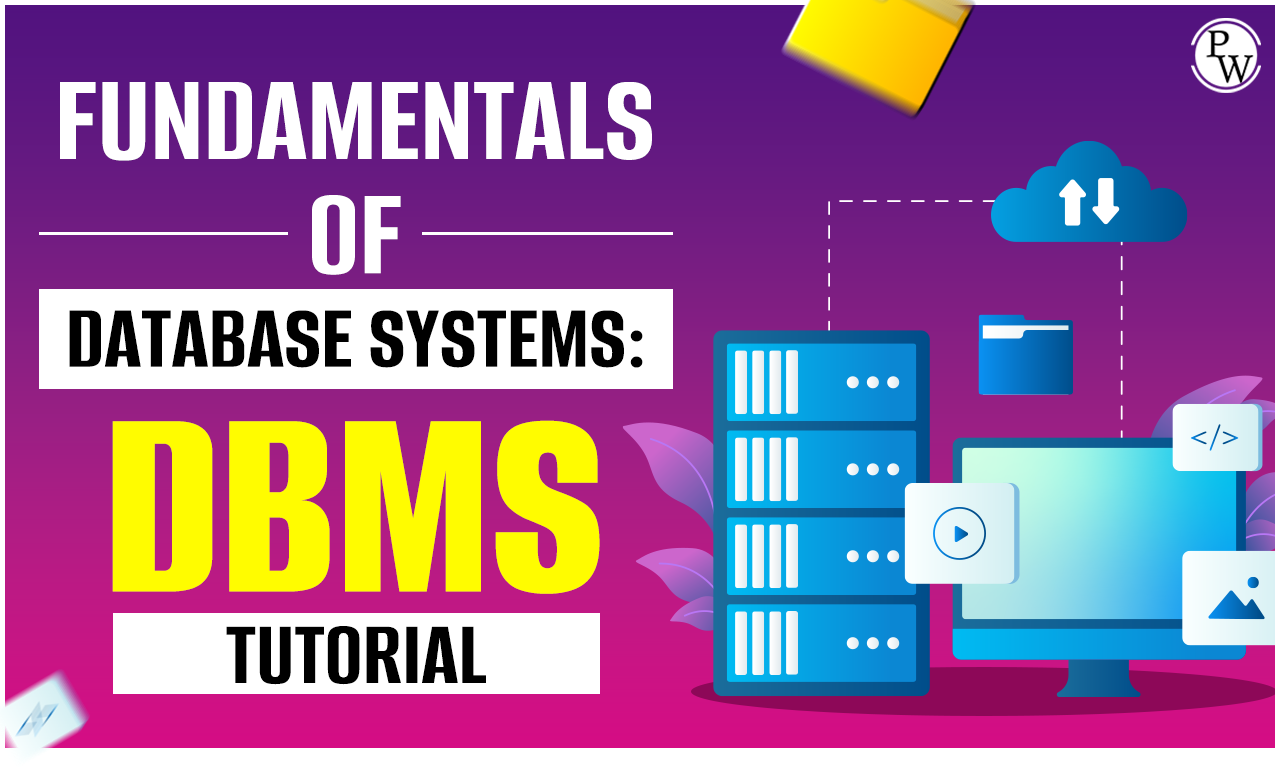Data refers to any information, thoughts, or media that we share with each other. Whenever we talk, message, or communicate in any way, we’re exchanging data. Data can take various forms on computers, such as plain text, numbers, characters, images, etc.
Data plays a crucial role in the computer world. It enables devices to perform tasks, process information, and provide us with the results we see on our screens. So, whether it’s text, numbers, or any other information, data is at the heart of how computers operate.
What is a Database?
A database is like a digital warehouse where we keep all our organized information in a computer system. It’s structured and stored in a way that makes it easy for computers to handle. Depending on the type of database, data can be stored in tables, like spreadsheets, which helps to keep things neat and organized. The main purpose of a database is to handle large amounts of data efficiently.
These days, databases are widely used to power many dynamic websites on the Internet. They serve as a central repository where data can be stored, accessed, updated, and managed effectively. To interact with databases, people often use a special language called SQL, which stands for Structured Query Language. It helps them write and retrieve data easily.
Also read: ER Diagram in DBMS: Understanding the Entity Relationship Model
Database administrators are the ones responsible for managing this valuable data. On the other hand, data scientists, analysts, and other professionals can access the data stored in databases to make sense of it and draw insights for various purposes.
There are different types of databases out there, like MySQL, Oracle, MongoDB, PostgreSQL, SQL Server, and more, each with its unique features and strengths.
Recommended Courses :
- Decode Data Science with ML 1.0
- Decode Full Stack Web Dev 1.0
- Decode JAVA with DSA 1.0
- System Design
Advantages of Database
Using a database to manage our data brings several benefits that make it a wise choice:
Efficient Storage: Databases can handle and organize a large amount of data effectively, making storing vast records easy.
Quick Data Retrieval: Finding the needed data is straightforward and fast with databases.
Easy Data Management: Adding new data, making changes, or deleting existing data is straightforward in a database.
Effortless Searching: Databases offer various techniques like indexing and binary searching, making searching and finding specific data easy.
Swift Sorting: Data can be sorted quickly and easily in a database, helping to arrange information meaningfully.
- Seamless Data Transfer: Databases allow easy importing of data into other applications, simplifying data sharing.
- Multi-Access Capability: Multiple people can access and use the same database simultaneously, promoting collaboration.
- Enhanced Data Security: Database security measures provide more protection for data than physical paper files, ensuring authorized access only.
- Transaction Management: Databases are also used for handling transactions, maintaining consistency and accuracy during essential operations.
- Additional Advantages: Databases offer access, integrity, and security, making them a preferred choice for reliable data storage.
Considering these advantages, a database becomes a logical and valuable choice for managing our data effectively.
Also read: What Is a Database? Definition, Types, Uses, Advantages
Types of Database
There are four main types of Database Management Systems (DBMS):
- Relational DBMS: This type of DBMS stores data in tables with rows and columns, making it easy to establish relationships between different data sets.
- Hierarchical DBMS: In this system, data is organized in a tree-like structure, with parent-child relationships, making it suitable for managing hierarchical data.
- Network DBMS: Network DBMS allows more flexible relationships between data using a graph-like structure, where records can be connected in multiple ways.
- Object-oriented DBMS: This DBMS stores data in objects like those represented in object-oriented programming, enabling more complex data models and relationships.
Applications of DBMS
ACID Properties:
DBMS is all about maintaining the health of the data, especially when multiple people are trying to access and change it simultaneously. To ensure data integrity, DBMS follows the ACID principles: Atomicity (ensuring all or nothing for a transaction), Consistency (keeping data in a valid state), Isolation (transactions don’t interfere with each other), and Durability (once a transaction is committed, it’s permanent).
Multiuser and Concurrent Access:
DBMS allows multiple users to access and work with the data simultaneously. It handles the complexity of concurrent transactions, ensuring data doesn’t get messed up when multiple users try to manipulate it at once.
Multiple Views:
DBMS provides different views of the data to different users. For example, someone in the Sales department will see a different view of the database than someone in the Production department. This way, users get the information they need without getting overwhelmed by unnecessary details.
Security:
Security is crucial when dealing with sensitive data. DBMS ensures that users can only access the data they see based on their department or role. It also allows setting constraints to control how data is entered and retrieved, providing different user access levels.
For instance, a Sales department employee won’t be able to see data from the Purchase department, and the amount of Sales data visible to them can also be managed. This security setup makes tamper with the data difficult for unauthorized individuals.
With all these features and safeguards, a DBMS becomes a reliable and secure way to manage data efficiently, making it much more robust than traditional file systems saved on disks. As a result, it’s quite challenging for mischievous individuals to breach its security.
Also read: Top DBMS Interview Questions in 2023






